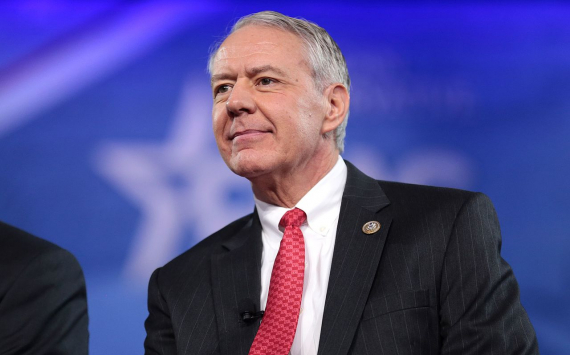
Bucking the Trend
Prominent Colorado Republican Ken Buck has unexpectedly chosen not to seek reelection, breaking from his party with candid criticism, signaling a noteworthy shift in the GOP's political landscape.
Ken Buck's national recognition has primarily stemmed from his unwavering commitment to his conservative principles. He has been notably vocal in challenging Donald Trump's claims regarding the 2020 election, even as a member of the House Freedom Caucus, a far-right faction within the Republican Party. Buck's career, marked by a background as a federal prosecutor, has seen him champion constitutionalist ideals, even as he navigated the increasingly populist flavor that has permeated his party under the influence of Trump.
What distinguishes Ken Buck is his readiness to engage in bipartisan cooperation and the pursuit of principled decision-making. His alliance with former Rep. David Cicilline in the fight against the power of tech giants like Amazon, Apple, Meta, and Google serves as a testament to his ability to work across the aisle. Some of the resulting bills, aimed at curtailing the influence of these tech companies, were signed into law by President Biden.
Buck's reputation for standing his ground and doing what he believes is right, even when it means opposing party leadership, is illustrated in his recent involvement in the internal affairs of the Republican Party. His critical vote against Jim Jordan's nomination as speaker nominee and the subsequent backlash and eviction from his district office underline his principled approach.
Former President Trump's characterization of Buck as a "weak and ineffective Super RINO" (Republicans In Name Only) is emblematic of the divisions within the party. Buck's recent testimony against banning Trump from the election under the "insurrection clause" of the Constitution shows his commitment to preserving space for reasonable disagreements within the party.
In Buck's own words, the evolving dynamics within the House no longer seem to accommodate such disagreements. As he leaves Congress, his departure signifies a significant shift within the conservative movement and reflects the evolving landscape of American politics. It raises questions about the future of the Republican Party and the challenges facing conservatives like Buck who choose principle over populist fervor.
















